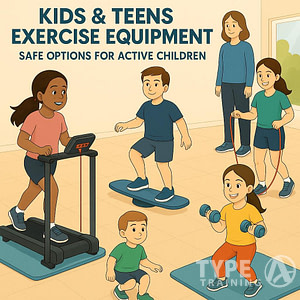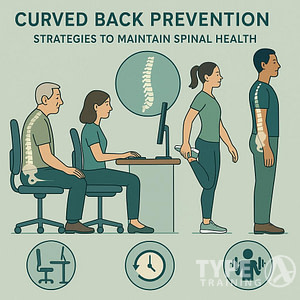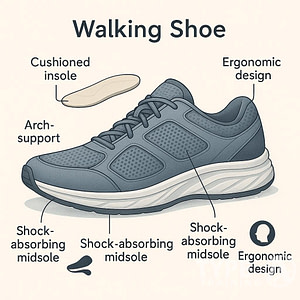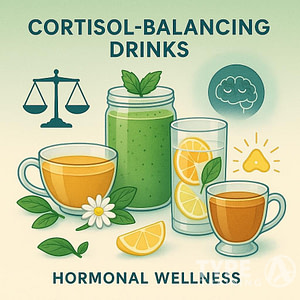The relationship between PTSD and sleep disturbances is intricate and significant in understanding the overall impact of trauma on mental health.
Individuals with PTSD frequently experience issues such as nightmares and difficulties falling asleep, which can severely disrupt their sleep quality. This disruption often leads to non-refreshing sleep, making it challenging to manage daily life activities effectively.
Addressing these sleep disturbances is a crucial aspect of treatment for PTSD.
Popular posts:
In many cases, these issues don’t simply fade away on their own; they require targeted interventions that might include therapy, medication, or other supportive measures.
The persistent nature of sleep problems can exacerbate PTSD symptoms, fueling a cycle of distress and dysfunction that hinders recovery.
Exploring treatment options is vital in helping you regain some control over your sleep and improve your mental health.
Effective treatments for PTSD-related sleep disturbances can include cognitive-behavioral therapy for insomnia (CBT-I) and medications specifically designed to address sleep problems.
Understanding this connection can empower you to seek the help necessary to break the cycle and improve both your sleep and overall well-being.
Understanding PTSD and Its Impact on Sleep
Post-Traumatic Stress Disorder (PTSD) often leads to sleep disturbances that significantly impact your sleep quality.
These problems often stem from neurobiological mechanisms within the brain and manifest as disruptive nocturnal behaviors. Assessing these issues is crucial for proper treatment and management.
The Neurobiological Mechanisms of PTSD and Sleep
PTSD affects the brain’s neurobiology, particularly areas involved in emotional regulation and fear response.
The amygdala, a key player in processing emotions, becomes hyperactive following a traumatic event. This hyperactivity can disrupt normal sleep patterns by increasing arousal levels, making it difficult for you to fall or stay asleep.
Changes in the hippocampus, which is involved in memory, can lead to vivid nightmares. These are common in individuals with PTSD and contribute to overall sleep problems.
Understanding these mechanisms is essential for developing therapies aimed at improving your sleep quality and PTSD symptoms.
Common Sleep Disturbances Associated with PTSD
People with PTSD often experience a range of sleep disturbances, including insomnia, nightmares, and other disruptive nocturnal behaviors.
Insomnia is prevalent, making it hard for you to initiate or maintain sleep.
Nightmares, which involve reliving a traumatic event, are reported by 50-70% of those with PTSD. These frequently lead to awakenings and a lack of restful sleep.
Disruptive nocturnal behaviors like acting out dreams or talking in your sleep can add to the problem. These behaviors interfere with reaching restorative sleep stages, further impacting daily functioning.
Recognizing these patterns helps in tailoring interventions that address specific sleep problems.
Assessment of Sleep Problems in PTSD Patients
For effective management, thorough assessment of your sleep patterns is crucial.
This often begins with self-reported sleep diaries or questionnaires, allowing for initial insights into your sleep quality and disturbances.
Tools like polysomnography or actigraphy may be employed for more detailed evaluations.
Behavioral assessments might focus on the severity and frequency of nocturnal symptoms.
Imagery Rehearsal Therapy can be considered if nightmares are predominant.
This therapy involves altering the script of your nightmares with less distressing endings, helping to reduce their impact and frequency.
Proper assessment ensures that treatments are accurate and suited to your specific needs.
Specific Sleep Disorders in PTSD Context
In the context of PTSD, certain sleep disorders manifest more frequently, including Trauma-Associated Sleep Disorder (TASD), Obstructive Sleep Apnea (OSA), Insomnia, and Nightmare Disorders. Understanding these disorders can provide insight into how PTSD affects sleep and potential avenues for intervention.
Trauma-Associated Sleep Disorder (TASD)
Trauma-Associated Sleep Disorder (TASD) is a specific condition characterized by disturbed sleep due to traumatic experiences.
It often involves parasomnias, such as sleepwalking or sleep terrors, which disrupt your sleep cycle. These disturbances might leave you feeling exhausted during the day.
Recognizing and diagnosing this disorder can be challenging due to its overlap with other PTSD-related symptoms. Nevertheless, interventions such as cognitive-behavioral therapy for trauma can be helpful.
By addressing both the psychological and physiological aspects of TASD, you can help restore a healthier sleep pattern and improve overall function.
Obstructive Sleep Apnea (OSA) and PTSD
Obstructive Sleep Apnea (OSA) is a sleep disorder where your breathing repeatedly stops and starts during sleep.
In the context of PTSD, OSA can exacerbate existing symptoms by contributing to fragmented and disturbed sleep.
The connection between PTSD and OSA lies in the shared risk factors such as increased stress and physiological arousal.
Sleep Disorders in Patients With Posttraumatic Stress Disorder suggest a bidirectional relationship between OSA and PTSD, complicating recovery efforts.
Treatments like Continuous Positive Airway Pressure (CPAP) therapy can be effective in managing OSA, potentially alleviating related PTSD symptoms by improving sleep quality.
Insomnia and Nightmare Disorders
Insomnia and Nightmare Disorders are prevalent among those with PTSD.
Up to 90% of individuals with PTSD report sleep disturbances, including difficulties falling and staying asleep.
Nightmares are particularly distressing, often replaying traumatic events. The frequency of these episodes can significantly impact your quality of life.
Targeted therapies, such as Imagery Rehearsal Therapy (IRT), aim to reduce the occurrence of nightmares by modifying their content.
According to Sleep Disturbances in Posttraumatic Stress Disorder, addressing these sleep disorders is crucial for effective PTSD management.
By prioritizing treatment for insomnia and nightmares, you can potentially see improvements in both sleep quality and daytime functioning.
Treatment Modalities for Sleep Disturbances in PTSD
Addressing sleep disturbances in PTSD involves a combination of psychological and pharmacological strategies. Each treatment aims to alleviate symptoms and improve sleep quality for those affected.
Behavioral and Psychological Interventions
Behavioral and psychological interventions focus on techniques that help you manage PTSD-related sleep disturbances.
Methods like relaxation training and Imagery Rehearsal Therapy (IRT) can be effective.
Relaxation training involves exercises to release tension and reduce anxiety, promoting better sleep.
IRT addresses nightmares by encouraging you to alter the ending of distressing dreams, reducing their intensity and frequency.
Continuous Positive Airway Pressure (CPAP) is another method, particularly beneficial if sleep apnea is present.
CPAP devices keep airways open, preventing interrupted breathing during sleep. These strategies aim to reduce PTSD symptoms and enhance your sleep quality.
Pharmacological Treatments and Sleep Medication
Pharmacological treatments often involve medications designed to target specific symptoms, including sleep disturbances.
A variety of sleep medications can be prescribed to improve sleep latency and reduce awakenings.
Commonly used medications may include prazosin, which targets nightmares, or other sleep aids that facilitate restful sleep without fostering dependency.
Antidepressants may also play a role, especially in cases where PTSD symptoms and sleep disturbances are closely linked.
Consultation with a healthcare provider is essential to determine the best medication for you, ensuring symptom relief while minimizing side effects.
Cognitive Behavioral Therapy for Insomnia (CBT-I)
CBT-I is a well-established, non-pharmacological treatment. It focuses on improving sleep quality by addressing the thoughts and behaviors that contribute to insomnia.
This therapy helps you develop healthier sleep habits. It also teaches a relaxation routine to ease the transition into sleep.
Key components of CBT-I include sleep restriction, stimulus control, and cognitive therapy. Sleep restriction minimizes time spent in bed while not sleeping, enhancing sleep efficiency. Stimulus control involves creating a sleep-friendly environment, and cognitive therapy addresses disruptive thoughts affecting sleep.
By implementing CBT-I, you can expect improvements in sleep patterns. You can also expect a reduction in PTSD symptoms related to insomnia.










